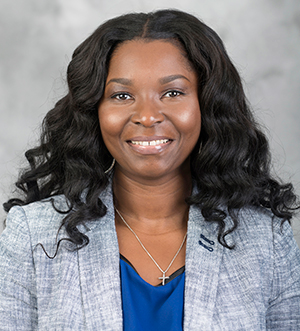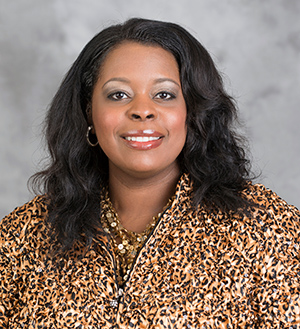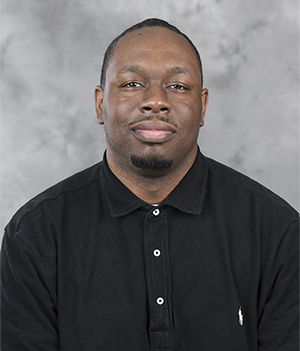CSEM Announces 2019-20 Faculty Research Fellows
Three Winston-Salem State University faculty members have been selected as the 2019-20 Center for the Study of Economic Mobility Faculty Research Fellows.
The fellows are chosen based on the likelihood that their research proposal will have a community impact down the road.
The newly selected fellows are Keisha G. Rogers, assistant professor of rehabilitation counseling; Tammara P. Thomas, associate professor of rehabilitation counseling; and Douglas Bates, assistant professor of social work.
The 2019-20 cohort is dedicated to exploring the barriers to economic mobility in Forsyth County. Research questions for this year’s fellows are:

- What are the hurdles to economic mobility for African American Women with a disability in Forsyth County?
- Time spent in prison: How does it impact economic mobility for convicted felons in Forsyth County?
Each project will receive a $15,000 grant to support work done in summer 2020.
“We’re delighted with the innovative and multi-disciplinary nature of both research projects,” said Craig Richardson, founding director of CSEM. “Most importantly, our ongoing research integrates CSEM’s big idea research model that reframes scientific inquiry to align the incentives of business, individuals, and government. The result is localized research that has the potential for high impact.”

A CSEM advisory committee consisting of WSSU faculty, staff, and community representatives reviewed fellowship applications following a rubric that measured the likely impact on the community and the academic world. Recommendations for the 2020 fellows were then made to Richardson and CSEM Associate Director Alvin Atkinson who used this data to make their final decisions for the three research fellows.
About CSEM
In September 2017, WSSU received a $3 million grant to launch a new center that funds research for five years. CSEM serves as a hub for faculty research, undergraduate student research, scholarship and community outreach. The grant is from the Thurgood Marshall College Fund’s Center for Advancing Opportunity, an initiative supported by The Charles Koch Foundation and Koch Industries.
Children from low-income families in Forsyth County are less likely to move up the income ladder as adults compared to kids almost anywhere else in the United States, according to a landmark study by economist Raj Chetty.
For more than 127 years, Winston-Salem State University has fostered creative thinking, analytical problem-solving, and depth of character needed to transform the world. Rooted in liberal education, WSSU’s curriculum prepares students to be thought leaders who have the skills and knowledge needed to develop innovative solutions to complex problems. WSSU is a historically Black constituent institution of the University of North Carolina with a rich tradition of contributing to the social, cultural, intellectual, and economic growth of North Carolina, the region and beyond. Guided by the motto, “Enter to Learn. Depart to Serve,” WSSU develops leaders who advance social justice by serving the world with compassion and commitment. Join us in celebrating our 125th anniversary with events throughout 2017.
About the Center for Advancing Opportunity
The Center for Advancing Opportunity expands educational, social, and economic opportunities in our nation’s most fragile communities through original research, educational programs, and direct engagement with residents. By listening to different community voices and supporting scholars and students passionate about making a positive difference, we work to empower people eager to put ideas into action and discover mutually beneficial solutions to bolster fragile communities across the country. Headquartered in Washington, D.C., the Center for Advancing Opportunity is a research and education initiative born out of a partnership with the Thurgood Marshall College Fund, the Charles Koch Foundation, and Koch Industries. The Center supports students and faculty at Historically Black Colleges and Universities (HBCUs) as well as other majority colleges and universities to develop research-based solutions to the most pressing issues in fragile communities.
For more information about the Center for Advancing Opportunity, visit https://www.advancingopportunity.org/.

